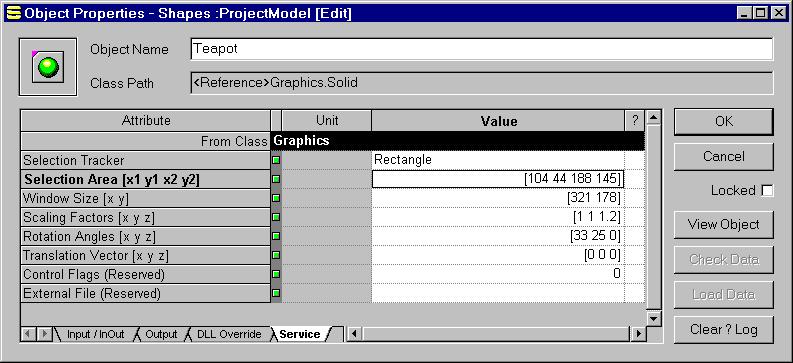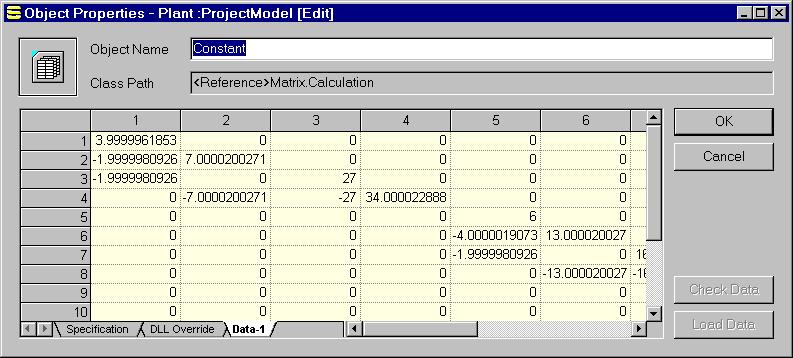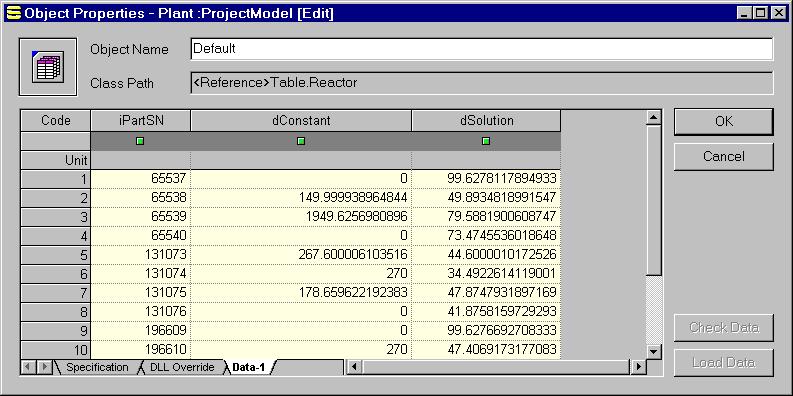Aggregate Data Types
Support collections, tables, matrices and more.
A simulation developer can define a number fields to allow a short vector (1-D) or matrix (2-D) to be entered directly in a single cell. For 2-D matrices, the user can append a transpose character (an apostrophe ') to instruct SansGUI to transpose the matrices immediately. The following figure shows the vectors defined in the attributes of intrinsic class Graphics.

Class Collection is the most fundamental aggregate data type in SansGUI. It allows simulation developers to define a set of attributes associated with a class.

Class Matrix supports one developer defined attribute with up to three dimensional data -- rows, columns, and sheets. The data can be edited manually, cut-copy-paste with other Windows programs, or loaded programmatically.

A table contains a set of attributes, which have equal number of elements in data arrays. The table can be defined as column-oriented with each attribute occupies a column, as depicted in the following figure.

A table can also be defined as row-oriented with each attribute occupies a row, illustrated by the next figure.

The Base class in the Component category is similar to the Collection class described above. In addition, it allows simulation developers to define attributes associated with connection ports. Simulation control classes are also similar to the Collection class except that it contains a set of intrinsic attributes to control simulation runs. The set of attributes can be extended by the simulation developers. Class Graphics is yet another example that is similar to class Collection with a predefined set of attributes for graphical operations, as depicted in the first figure on this page.
SansGUI Modeling and Simulation Environment version 1.2
Copyright © 2000-2003 ProtoDesign, Inc. All rights reserved.